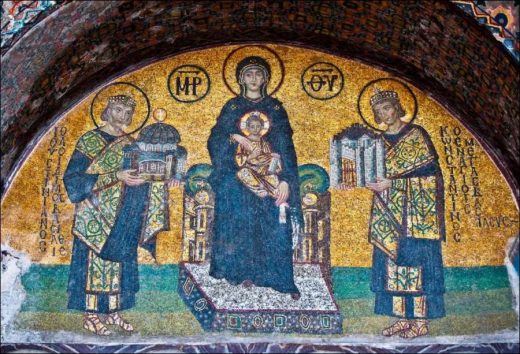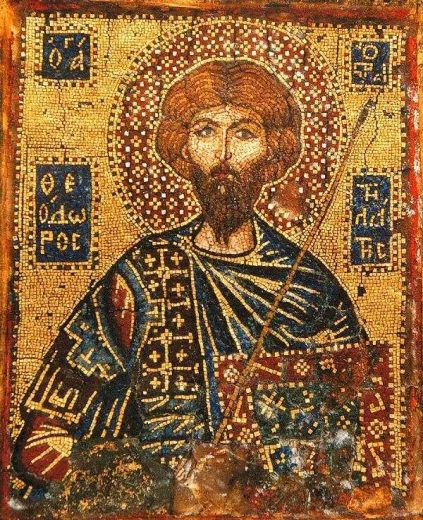Justinian’s reign in the Byzantine Empire. The Justinian period was also a turning point with the conquest movements to reunite the Eastern and Western wings, known as Renovatio Imperii, the construction of Hagia Sophia, and the closure of the last pagan school, the Academy of Athens. Byzantium had now turned into an empire that adopted a Greek-Christian identity.
While the ground of Byzantium was strengthening, the Persians, the Other of the centuries, did not remain idle. Although the Heraclius period, which was considered the most successful period of Byzantium, stood out with the crushing victories of the Byzantine forces against the Persian forces, these wars exhausted both the Persians and the Byzantines. Well, in the meantime, there was another force rising from the Arabian Peninsula: Muslim Arabs. At this point, the struggle that would leave its mark on our centuries began.
After this, the Arabs became the other side of the coin for Byzantium. When the Arabs turned the siege of Constantinople into a hobby, the Byzantines’ discovery of the Greek Fire, whose description is still not fully understood, kept as a state secret and destroyed, not only extended the life of the empire, but also turned into a legend used in many fantastic works even today. We are really curious about the moment when the Greek Fire was discovered, dear readers, imagine that you find a fire, it continues to burn in the water, the fire does not go out… Imagine the atmosphere that the person who finds this weapon will experience…
We would also like to touch upon the Golden Age diplomacy, dear readers. The biggest criticism against Byzantium is that it favors solving the problem by talking rather than fighting, which is due to its very successful diplomacy skills. Even while gifting the sacred relics, that is, relics, which are very important for Christianity, to the rulers of other countries, he managed to transform this gift-giving ritual into a balance of power, to impose his superiority and to become the empire itself for the surrounding countries.
It is a world brand for bureaucracy, everything is finely tuned and placed into the system. Religious administration is not mixed as in the West, but completely centralized. Although we cannot talk about separate sects until the rupture that took place in the 11th century, Byzantine churches managed to become an example in the entire Christian world with both their management style and their communion.
In short, dear readers… Although the Byzantine Empire was effeminate, fond of intrigue, as if its streets could not be walked around, its palaces could not be breathed in, everyone tried to undermine each other, and was treated as if the whole world was relieved when it collapsed, it is different from the empires that came before or after it. Byzantium, which the enlightenmentists vilify as if Byzantium was a personal insult to them and whom we treat as if it were a troublesome enemy in our distinguished country, is actually the pearl of the Mediterranean and the queen of empires.
Visits: 102




